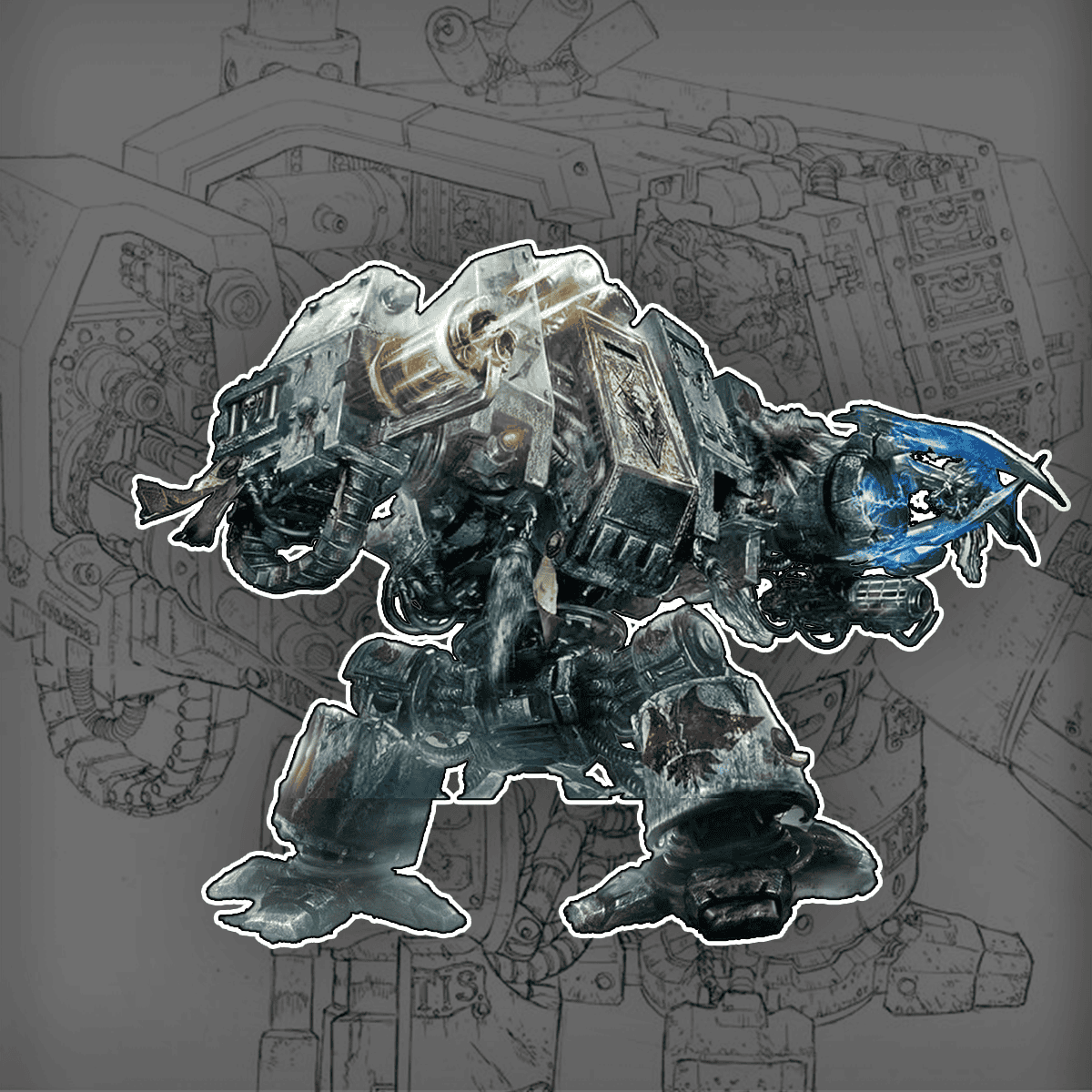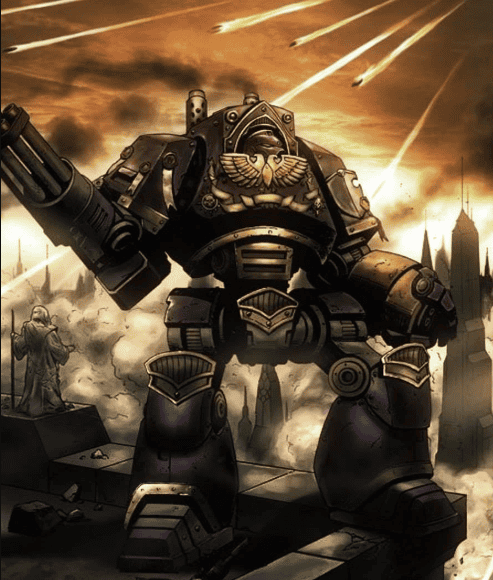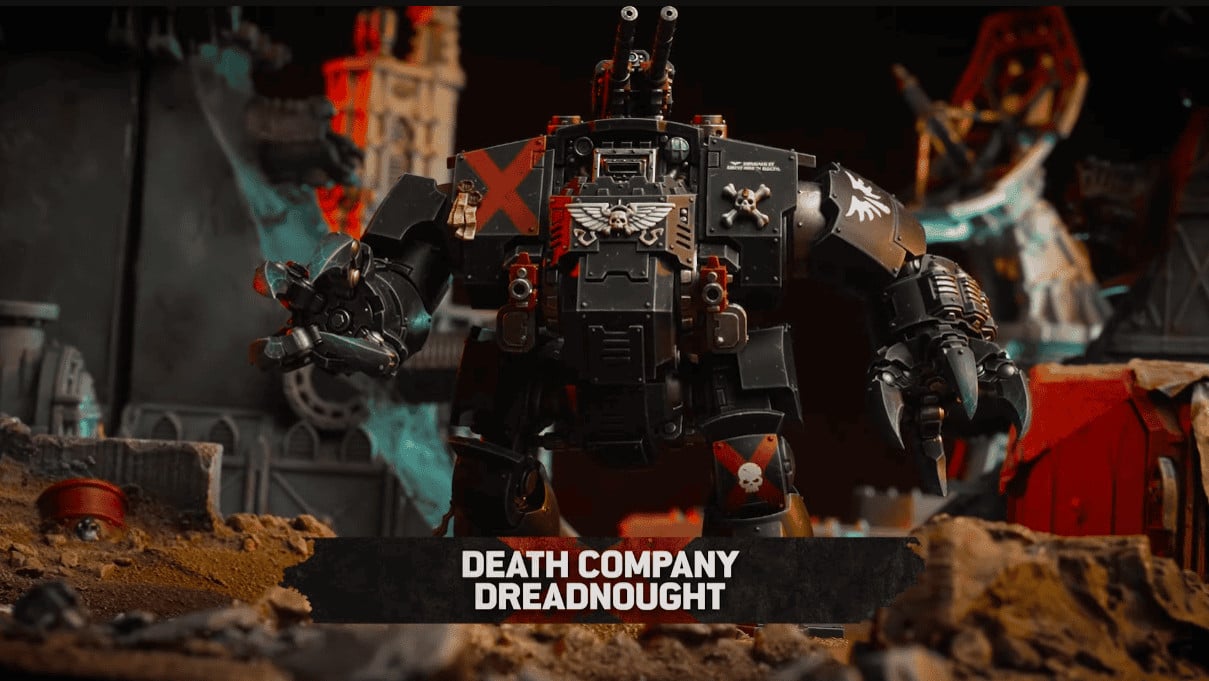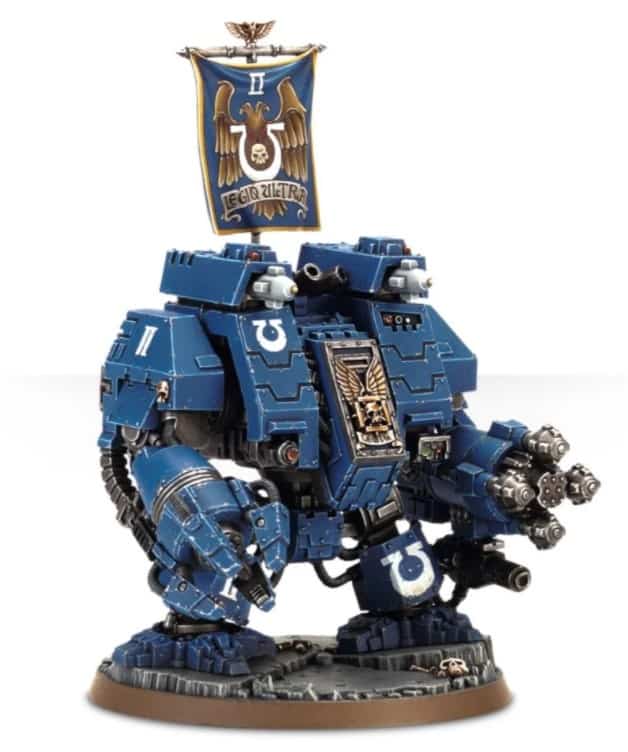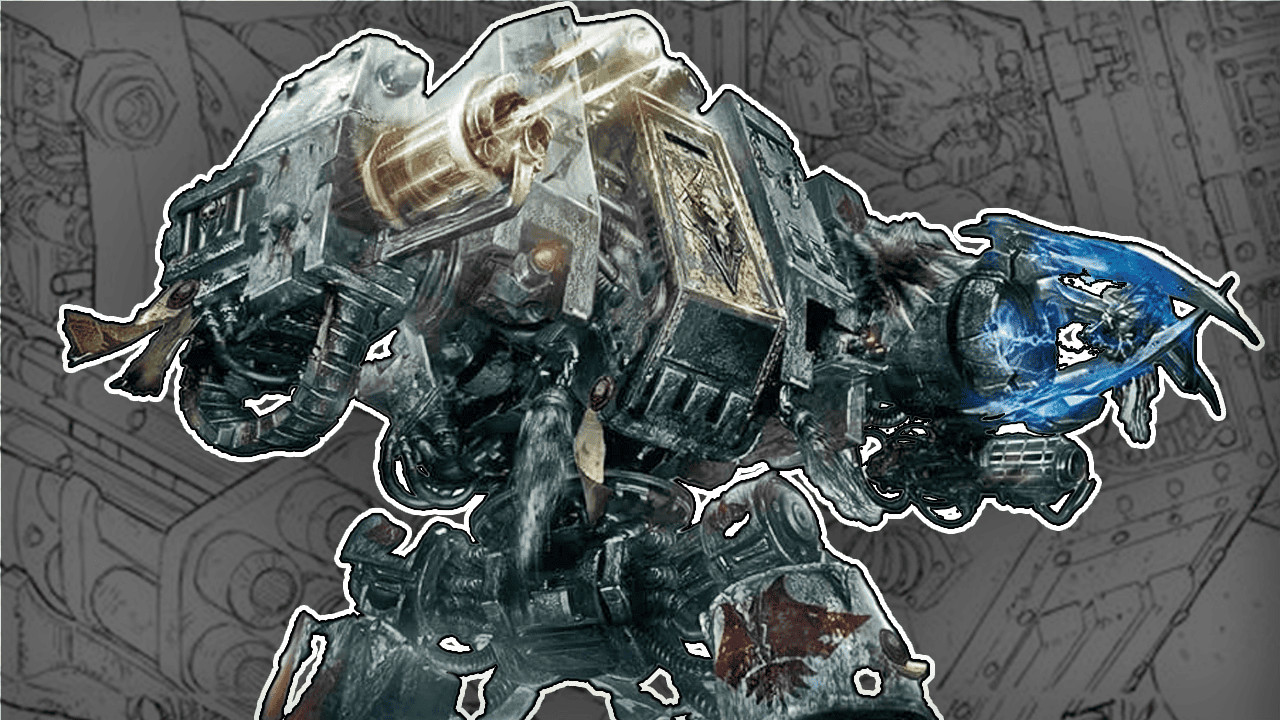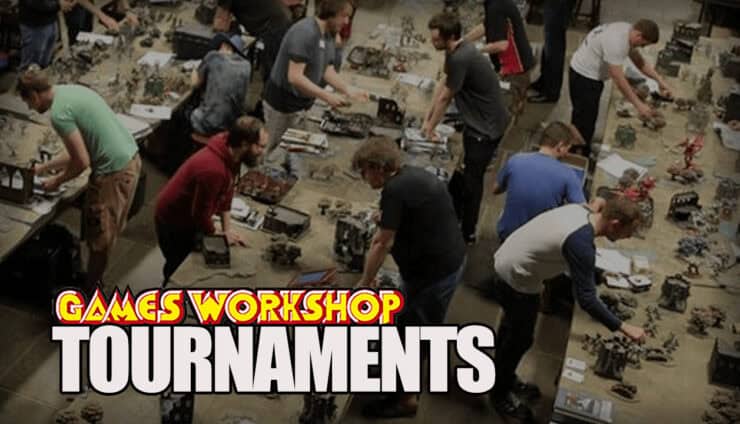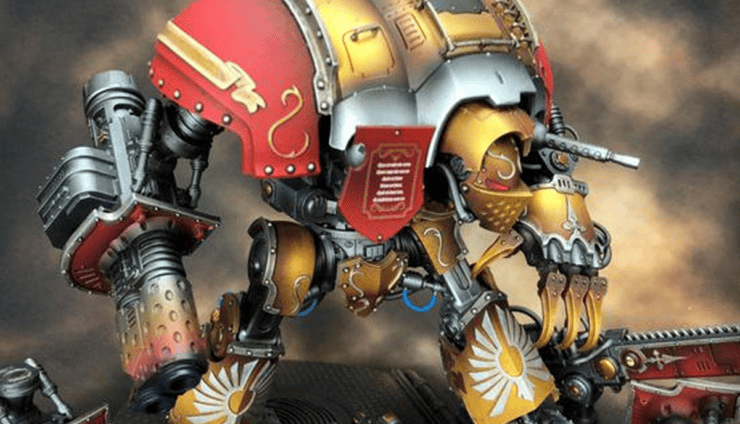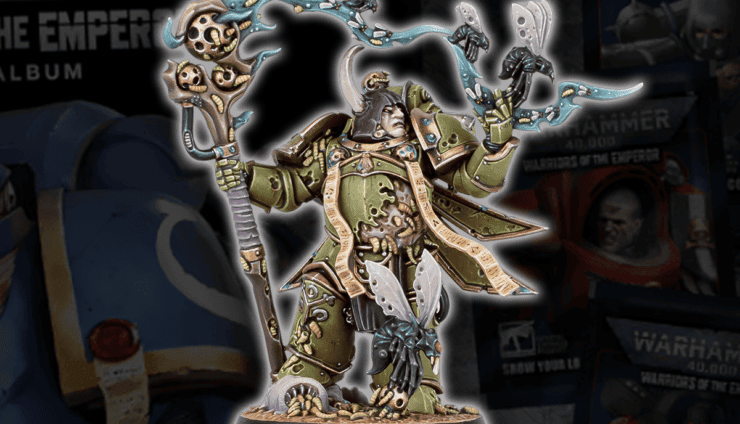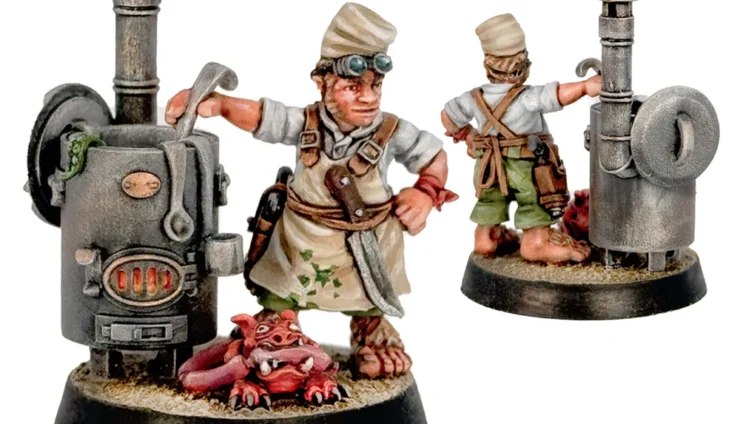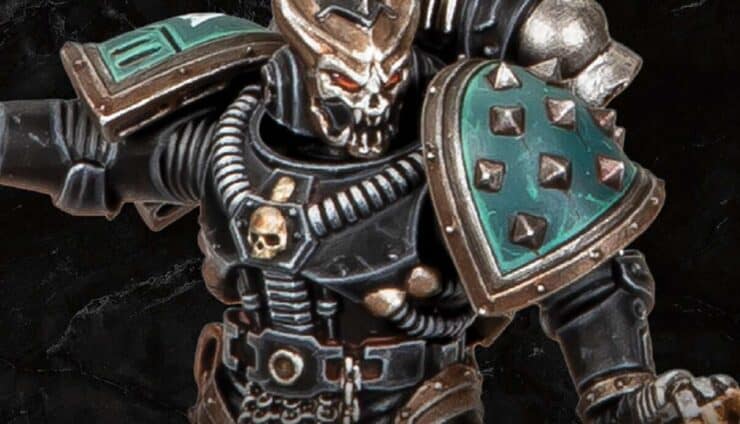Step inside a Warhammer 40k Dreadnought, where Space Marines endure eternal service, interior isolation, and suffering, continuing their fight.
So, you’ve heard of Dreadnoughts—those hulking, lumbering war machines stomping across battlefields in Warhammer 40k. To the untrained eye, they’re just oversized, walking tanks with a knack for obliterating anything in their path. But for the unlucky Space Marine entombed inside, it’s far more than that.
Being a Dreadnought is like pulling the worst eternal shift at work—except your office is a metal tomb, your only breaks are during stasis sleep, and your coworkers are mostly chainswords and lascannons.
What It’s Like Inside of a Dreadnought in Warhammer 40k

Image Credit and Tutorial: The Ward Save
Imagine that you’re a legendary warrior, having fought countless battles, and just when you think it’s all over, they drag your broken body back into the fight. No, not as a regular soldier anymore—those days are behind you.
Now, you’re encased in a towering, walking tomb of metal and guns, known as a Dreadnought. It’s not exactly the peaceful afterlife you might have imagined.
Top 5 Named Dreadnoughts in Warhammer 40k:
- Bjorn the Fell-Handed (Space Wolves):
The oldest living Dreadnought and a legendary warrior of the Space Wolves, known for his wisdom and ferocity. - Murderfang (Space Wolves):
A berserk Dreadnought encased in claws and rage, embodying the uncontrollable fury of the Wulfen.
- Rylanor (Emperor’s Children):
A loyalist Dreadnought who defied the traitorous actions of his Legion during the Horus Heresy. - Ancient Tiberius (Ultramarines):
A revered Ultramarines Dreadnought, Tiberius has fought countless battles to uphold the honor of his Chapter. - Ancient Helveticus (Dark Angels):
A veteran Dreadnought of the Dark Angels, shrouded in mystery and tasked with preserving the Chapter’s deepest secrets.
What Happens to a Space Marine Inside of a 40k Dreadnaught?
So, you’ve fought for centuries, gunning down heretics and xenos alike, but fate has other plans. You take a plasma blast to the chest, and instead of a glorious death in battle, your brothers decide, “Hey, let’s not waste a perfectly good warrior!”
Next thing you know, you’re entombed inside of a Dreadnaught, (like this Fantastic Warhammer 40k Art by Pen User on DV), a walking metal tomb where you spend the rest of your very extended life. It’s not exactly the peaceful afterlife one might hope for.
Being inside of a Dreadnought is no cakewalk. In fact, it’s more of a brutal, lifelong imprisonment, with the occasional upside of blowing up enemies. Let’s break down what really happens to a Space Marine when they’re encased in one of these mechanical monstrosities.
The Process of Becoming a Dreadnought
Let’s not sugarcoat it: getting placed in the interior of a 40k Dreadnought is a last resort. If a Space Marine has been so badly injured that even the finest apothecaries in the Imperium can’t fix them, but they still have a few brain cells and a functioning spinal cord, they get interred inside one of these behemoths.
Think of it as the Imperium’s way of recycling its greatest warriors. After all, you can’t just toss a legend aside, right? The process begins after a catastrophic injury—often, there’s not much left of the Marine, maybe just a torso and head.
They’re placed inside a sarcophagus within the Dreadnought, hooked up to various life-support systems that keep what’s left of them alive. These systems are critical since the Marine can no longer survive on their own.
But survival isn’t the same as living. The Mind Impulse Unit (MIU) is then connected, linking the Marine’s nervous system to the Dreadnought’s mechanical frame. The Marine’s mind becomes the operating system for the entire machine. It’s a grim marriage of man and machine, where one keeps the other alive, though neither is particularly happy about it.
Neural Links and the Mind Impulse Unit
The Mind Impulse Unit is the neural link that allows a Space Marine to control the Dreadnought’s massive limbs and weapons. It’s an impressive piece of Warhammer 40k technology, but it comes at a cost. The Marine’s consciousness merges with the machine, allowing them to pilot it as if it were their own body.
But here’s the catch: while they can move the machine’s arms and legs and even fire its cannons, they can’t feel anything. Imagine punching a Chaos Space Marine into oblivion with a power fist but feeling nothing. No satisfying crunch of armor, no recoil from your weapon, just the cold, mechanical response of the Dreadnought.
Sure, the Marine knows it’s happening—neurally, it makes sense—but there’s no sensation, no feedback from the external world. The machine is an extension of the Marine’s will, but it’s all hollow. Some Dreadnoughts describe this as an unending numbness, a constant reminder of the life they no longer have.
The Physical and Psychological Toll
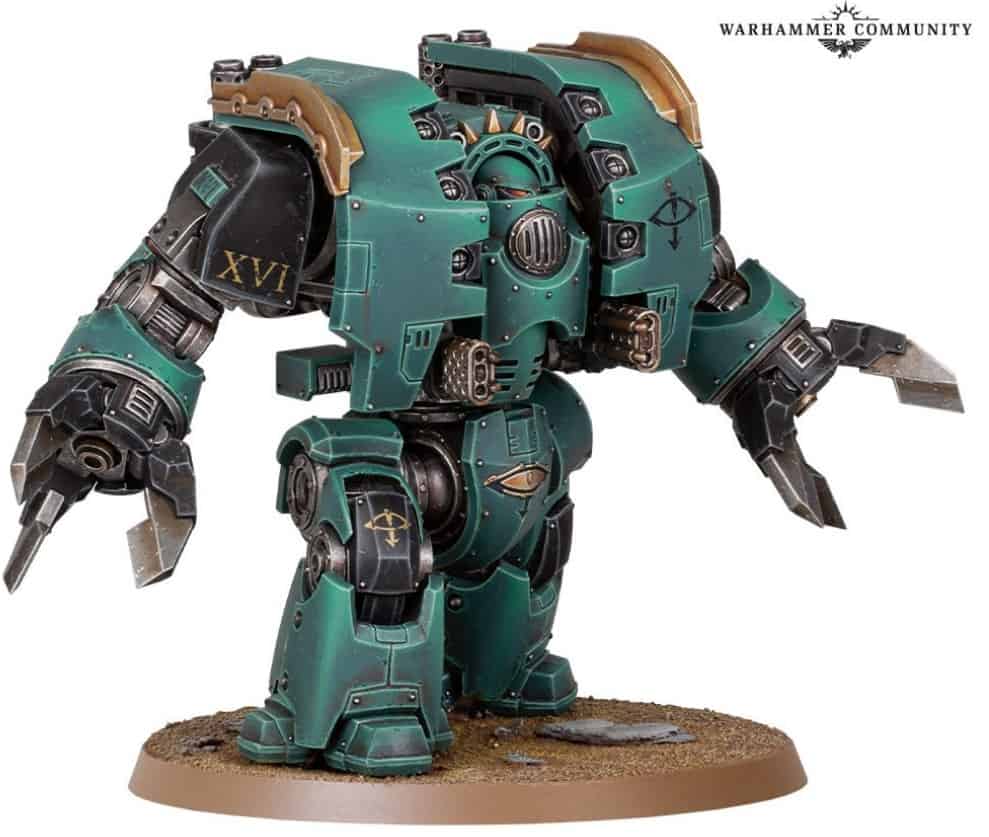
What’s left of the Space Marine is essentially a brain and a few organs, kept alive purely to control the machine. The psychological toll, however, is where things get truly dark. Take Malcharion, a Dreadnought from the Night Lords series.
He famously described his existence as torture—waking up only for battle, then returning to cold, empty slumber. There’s no feeling of triumph when they crush enemies underfoot or tear apart heretics with a power claw.
It’s all duty, no glory. Some Warhammer 40k Dreadnoughts go mad from the isolation on the inside of a dreadnought, screaming into the internal void as they march into battle after battle.
Even for the most stoic Marines, the reality is grim. They may still serve their chapter, but they are no longer part of it. They’re relics, rolled out when needed, then forgotten once the fight is over. It’s like being trapped in a nightmare where your only waking moments are filled with bloodshed, and your downtime is spent in a mechanical coma.
The Role of the Dreadnought in Warhammer 40k Lore
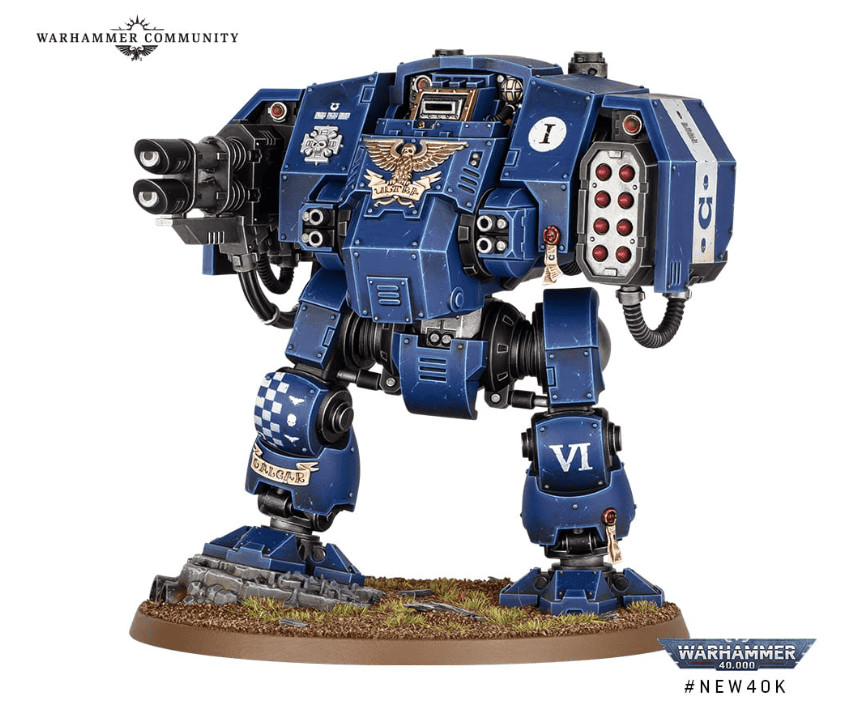
No one embodies the phrase “never say die” quite like a Space Marine Dreadnought.
Snag your new Warhammer 40k Dreadnought model, and give us a high-five in support! Every qualifying purchase helps Spikey Bits keep the lights on and the fun going.
- Standing three times the height of a man, these towering war machines bear powerful weapons and are as lethal at range as in close assault; A chapter's Dreadnoughts are treasured relics, only awoken in great need; Encased inside every Dreadnought lies a mighty Space Marine hero, who has suffered grievous wounds in battle, saved only by his internment; Venerable Dreadnoughts bring their wisdom to the Chapter in times of peace, and immense battlefield experience in times of war
- This box set contains one multi-part plastic Venerable Dreadnought;
- Space Marines: Venerable Dreadnought
- Standing three times the height of a man, these towering war machines bear powerful weapons and are as lethal at range as in close assault; A chapter's Dreadnoughts are treasured relics, only awoken in great need; Encased inside every Dreadnought lies a mighty Space Marine hero, who has suffered grievous wounds in battle, saved only by his internment; Venerable Dreadnoughts bring their wisdom to the Chapter in times of peace, and immense battlefield experience in times of war
Last update on 2025-01-02 / Affiliate links / Images from Amazon Product Advertising API
The Purpose of Dreadnoughts
At their core (pun intended), Dreadnoughts serve one purpose: to extend the life of a warrior who would otherwise be lost to injury or age. When a Space Marine suffers a near-fatal wound, and there’s no saving what’s left of them, their chapter may decide that instead of letting them rest, they should be sealed inside a Dreadnought.
This way, their combat expertise and experience can still be put to use, even if all that’s left of the Marine is a brain and some twitchy muscles.
Think of them as a kind of bridge between life and death—a horrifying compromise where the Marine’s body is a wreck, but their mind can still direct the massive war machine they’ve been grafted into. These warriors can sleep for centuries, only to be woken when needed, usually in the midst of a galaxy-shaking conflict.
So, while the rest of us might take a nap and wake up groggy, Dreadnoughts awake after 500 years ready to smash things with a power fist.
Famous Dreadnoughts in Warhammer 40k History
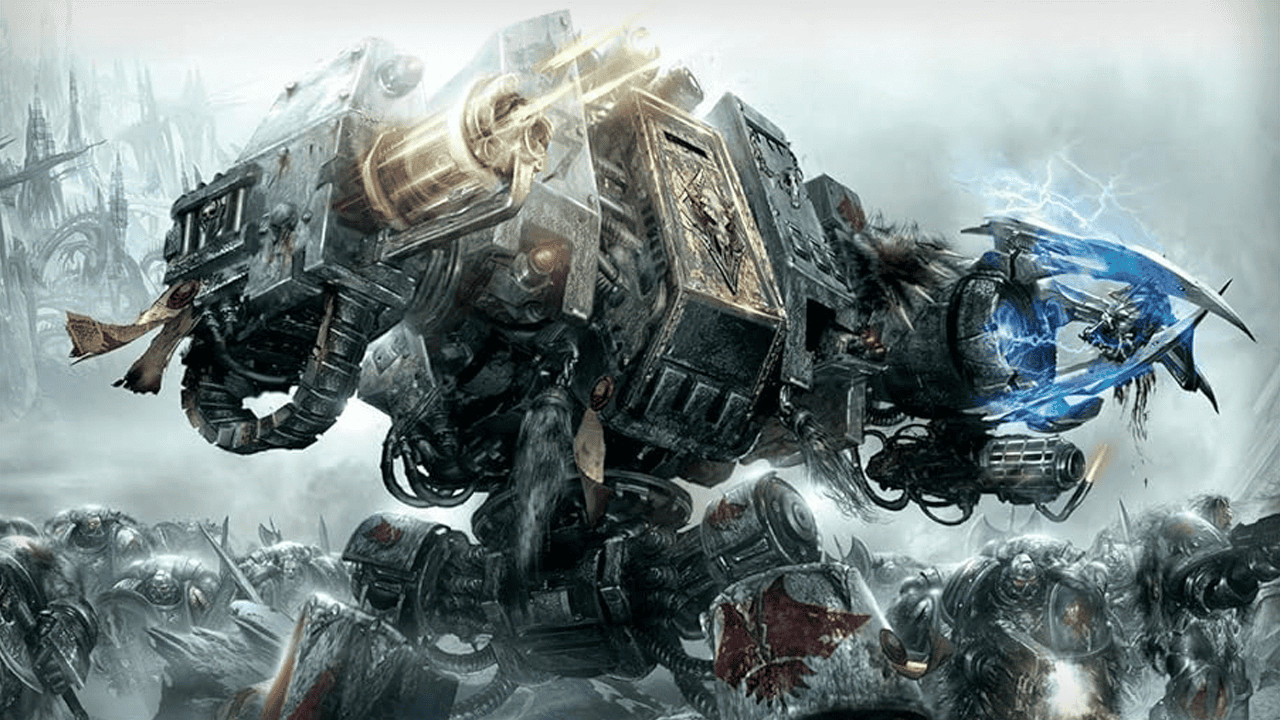
This guy has seen—and crushed—things most Space Marines can only dream of. He’s not just a Dreadnought; he’s a legend, and the Space Wolves treat him with the kind of reverence you’d expect for a figure of myth.
And Bjorn isn’t alone. Across the Imperium, other famous Dreadnoughts have earned their place in 40k history, their dreadnought interior housing warriors from some of the most iconic chapters. Whether they’re leading charges or holding the line, Dreadnoughts are unstoppable forces that have fought in wars spanning millennia.
You don’t just mess with a Dreadnought. You either run or get squashed—and that’s if you’re lucky.
The Emotional Conflict of Duty & Suffering
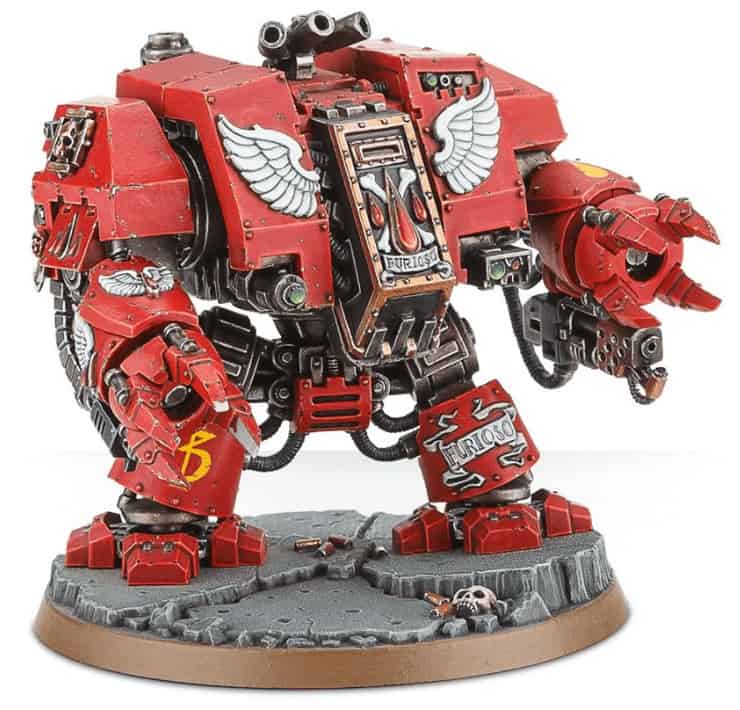
The mind of a Space Marine inside a Dreadnought is constantly at odds with the burden of eternal service, trapped in a body that can no longer feel joy, pain, or any real sensation. It’s a strange, torturous limbo, where duty never sleeps, but your soul yearns for rest.
The Sense of Duty
Space Marines are famous for their sense of duty, but being a Dreadnought cranks that commitment up to 11. A Dreadnought is often an ancient warrior who has fought hundreds of battles and, in many cases, personally served the Emperor’s will. While the average Marine may suffer injury or death in combat, those interred within a Dreadnought endure a far worse fate: eternal service.
The kicker is, most Dreadnoughts accept this as part of their sacred responsibility. After all, loyalty to the Emperor isn’t just a job—it’s life. Even in a torturous metal sarcophagus, these Marines continue to fight with pride, knowing their service is an honor. In many cases, they believe their suffering is a necessary sacrifice, one that ensures their chapter’s continued survival.
However, the reality is a bit more complex. While there’s pride in fighting for the Emperor, the personal cost is enormous. These Marines no longer have the thrill of battle or the camaraderie of their brothers; all that remains is the duty that drags them back into the fray.
The Eternal Burden
Now, here’s where things get even bleaker. The life of a Dreadnought is defined by isolation. These warriors aren’t active all the time. Instead, they’re kept in stasis, often for centuries, only to be awoken when war demands their strength. This means that their existence is punctuated by long periods of dreamless sleep, with brief, violent interruptions.
Being woken only for war takes its toll. Over time, many Dreadnoughts start to experience mental decline. The weight of their eternal service, combined with the centuries of isolation, can drive them mad.
This is why loyalist chapters often put their Dreadnoughts into stasis, essentially “freezing” them until the next battle. It’s a cold mercy, a way to preserve their minds from the crushing solitude and unending march of time.
But let’s not sugarcoat it: being a Dreadnought is still a burden, an existence where isolation and violence are the only constants. There’s no escape from this fate, and many Dreadnoughts eventually succumb to madness, their minds worn down by the endless cycle of sleep and war.
Famous Examples of Dreadnoughts in Warhammer 40k Media
Warhammer 40k is filled with stories of legendary Dreadnoughts who have shaped the fate of entire campaigns. These ancient warriors aren’t just footnotes in history; they’re titans whose presence changes the very course of battles.
 Dreadnoughts in Warhammer 40k Books
Dreadnoughts in Warhammer 40k Books
One of the best ways to get a glimpse into the tortured mind of a Dreadnought is through Warhammer 40k’s rich library of books and audio dramas. The Glorious Tomb by Guy Haley is a standout example, offering a firsthand look at what it’s like to be encased in a Dreadnought.
It’s a powerful, often painful story that highlights the loneliness and frustration that come with eternal service and the Warhammer 40k Dreadnought interior.
Similarly, Betrayer by Aaron Dembski-Bowden gives readers insight into the mind of Lhorke, a World Eater Dreadnought who reflects on his decaying body and the discomfort of existing in a mechanical form. These stories bring home the tragedy of the Dreadnought’s existence—trapped between life and death, fighting on because there’s nothing else left for them to do.
- Audible Audiobook
- Aaron Dembski-Bowden (Author) - Jonathan Keeble (Narrator)
- English (Publication Language)
- 10/05/2017 (Publication Date) - Black Library (Publisher)
Last update on 2025-01-02 / Affiliate links / Images from Amazon Product Advertising API
Key Battles Involving Dreadnoughts
Dreadnoughts have been part of some of the most pivotal battles in Warhammer 40k history. Their sheer power can turn the tide of war, and they’ve been known to hold the line when all seems lost. During the Battle of Prospero, the Space Wolves unleashed their Dreadnoughts to tear through the Thousand Sons’ defenses.
Bjorn the Fell-Handed, a legendary Space Wolf Dreadnought, was there, smashing psykers and heretics left and right.
Then there’s the Siege of Terra, where Dreadnoughts played a crucial role in defending the Imperial Palace against Horus’ forces. These walking tanks are often the last bastion of hope, their firepower and resilience unmatched by anything short of a Titan.
Final Thoughts on the Interior & Being Inside of a Dreadnought in 40k
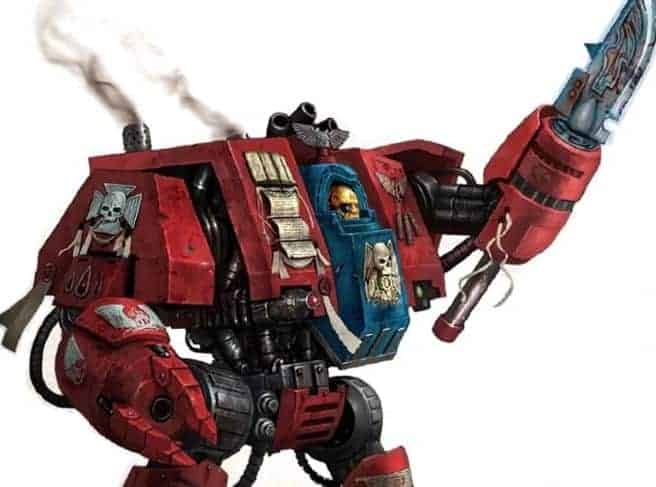
Whether it’s the sense of duty that keeps them going or the lack of any alternative, these ancient warriors press on, even when their minds might be crumbling under the weight of isolation and battle fatigue.
So next time you see a Dreadnought in 40k tearing through enemies, remember—inside that armored interior hulk is a Space Marine with a lot of baggage and no chance of a retirement plan. But hey, at least they get to keep fighting the good fight, even if it’s from the inside of a walking tomb.
Warhammer 40k Factions Explained: A Complete Guide to Every Army
What are your thoughts on the Space Marines who end on the inside of a Warhammer 40k dreadnought, er dreadnaught interior?
